42 food labels and diabetes
How to read food labels | healthdirect the country where the food was produced; Understanding nutrition claims. Some labels tell you what percentage of the recommended daily intake is provided by 1 serve of the product. This helps you to work out how the food fits into a balanced diet. Read more about recommended daily intakes for adults and recommended daily intakes for children. Food Labels | Nutrition.gov Food and Drug Administration (FDA) regulates the safety of food for humans and animals, including foods produced from genetically engineered (GE) plants, sometimes referred to as "genetically modified organisms" (GMOs). Find out more about the safety of GE plants, and how they are regulated here.
Diabetes Diet: 10 Foods to Eat to Help Prevent Diabetes - Lark Health Whole wheat or whole grain bread, rolls, buns, pita, bagels, tortillas, or English muffins. White pasta and rice. Whole-grain pasta and brown rice or another whole grain, such as quinoa or barley. Refined breakfast cereal or cream of wheat. Whole-grain cereal, such as shredded wheat, bran flakes, or oatmeal.

Food labels and diabetes
Reading labels | Diabetes UK Key points Always look at the 'total carbohydrate' on the label when carb counting. This will make sure you are counting both the complex (starchy) and simple (sugary) carbs in your food. Both will raise your blood glucose (blood sugar) levels, and need to be matched with insulin. Food Labels | Know Diabetes If this is the case the label should say 'contains naturally occurring sugars'. Low-sugar The product must contain less than 5 g of sugar per 100 g, or 2.5 g of sugar per 100 ml. Reduced-sugar The product must contain 30% less sugar than the standard equivalent product. This does not mean the product is always low in sugar. Sugar-free Understanding food labels fact sheet - NDSS Labels on packaged foods provide information that can help you make healthier food choices. Making healthy food choices can help you to manage your diabetes, weight, and overall health. Understanding how to read food labels can help you choose foods with more fibre and less saturated fat, salt (sodium), added sugars and kilojoules.
Food labels and diabetes. Food Label Know How | American Diabetes Association Food Label Know How. Plan Your Plate . Sugar Substitutes . Grupos de Alimentos y Tamaños de las Porciones. Formas Saludables de Cocinar y Sazonar los Alimentos. Compras en el Supermercado. Como Leer las Etiquetas de los Alimentos. Planifique su Plato Saludable. Sustitutos del Azúcar. American Diabetes Association 2451 Crystal Drive, Suite 900 ... Food Labels | CDC - Centers for Disease Control and Prevention 20.09.2022 · Food Labels. Español (Spanish) Related Pages. Understanding the Nutrition Facts label on food items can help you make healthier choices. The label breaks down the amount of calories, carbs, fat, fiber, protein, and vitamins per serving of the food, making it easier to compare the nutrition of similar products. Be sure to look at different brands of the same … Reading Food Labels When You Have Diabetes | HealthLink BC Saturated fat and trans fat are listed on the food label. The lower the number of grams, the better. Limit how much saturated and trans fat you eat. A food is considered low in saturated fat if it has 5% or less of the daily value. A food is considered high in saturated fat if it has 15% or more of the daily value. No Sugar Labels on Food | Diabetes Forum • The Global Diabetes Community Glenninindy said: Subsequent Finger glucose tests every month, have been in normal range. Not sure where you're based, but in the UK diabetes would usually be diagnosed using an HbA1c test, which estimates your average blood sugars over an 8-12 week period. Single, random finger prick tests really won't tell you much at all.
Understanding food labels - Diabetes Ireland Sometimes the producer claims on the pack that a food is for example 'Low in fat', 'High fibre' or a 'Source of calcium'. Recent EU legislation has regulated the use of nutrition and health claims in order to protect the consumer against. For more information on understanding food labels and diabetes, download our Food Labels booklet. Reading Food Labels | ADA - American Diabetes Association The Nutrition Facts labels on foods are really the key to making the best choices. We'll cover the basics so that these labels make shopping easier for you. Get started Understanding Carbs You've heard it all. From carb-free to low-carb, to whole and empty carbs, it's hard to know what it all means. Learn more Food & Blood Sugar How to Read Food Labels When You Are Diabetic - Diabetics Weekly This is the most important aspect of how to read food labels when you have diabetes. The total amount of carbohydrates breaks down into complex carbohydrates, sugar, and fiber. Don't hone in on zero-sugar foods, as foods like milk and fruit contain natural sugars. By the same token, make sure to watch out for foods extremely high in carbohydrates. Reading food labels: Tips if you have diabetes - Drugs.com Nutrients and Daily Value: The label must list the amounts of total fat, saturated fat, trans fat, cholesterol, sodium, total carbohydrate, dietary fiber, sugars, protein, vitamin D, calcium, iron and potassium that are in one serving. The Daily Value (DV) tells you how close you are to meeting your daily requirements for each nutrient.
Study Reveals Importance of Food Labels in Fight Against Diabetes The often ignored or misunderstood labels that, as required by law, provide nutritional information on all food packaging may hold a key to reducing the negative consequences of diabetes in underserved populations, a new Yale School of Public Health study has found. In a paper published in the American Journal of Public Health, Grace Kollannoor ... Understanding Food Labels - The Nutrition Source All FOP labels in the U.S. are voluntary, which allows food manufacturers to highlight or hide the nutrition information they choose to help promote or preserve sales. If warning labels became mandatory, as public health advocates propose, the pressure on manufacturers would increase to change certain products to improve their nutritional quality. Understanding food labels | Diabetes UK Check the ingredients list - if syrup, invert syrup, cane sugar, molasses or anything ending in 'ose' is within the first three ingredients, this suggests the food contains more added sugar. Choose an alternative if possible, or be mindful of the portion you eat. Check the fibre content on the back of pack label. Decoding Diabetes: How to Read Nutrition Labels | Accu-Chek It is listed out separately from total carbs to help anybody seeking to limit sugar, like people with diabetes, find foods that fit their diets. • Additional Sugar: Finally, some newer food labels may have an additional line under Sugar that lists anything that was added beyond the natural sugars contained in the other ingredients in the food.
Food Labels & Type 2 Diabetes | Level2 Sugar-free products. Sugar-free is important for managing diabetes, but pay attention to carbohydrates.If the label says sugar-free and there are fewer carbohydrates, you're good to go. If the choice is between a sugar-free product with just as many carbohydrates as a standard product, you're better off choosing based on price or taste.
Reading Food Labels When You Have Diabetes - WebMD Food labels can help you make better decisions about what you eat and how you manage your diabetes. Just about every packaged food made in the U.S. has a "Nutrition Facts" label that gives a ...
Understanding Ingredients on Food Labels | American Heart ... Mar 06, 2017 · Food labels are an important source of information about calories and the nutritional value of the foods you eat, a crucial tool in building a heart-healthy diet. The Nutrition Facts information is always displayed in the same orderly fashion and helps you understand how much of certain nutrients that you need to limit are contained in the ...
Food Labels | ADA - diabetes.org Reading Food Labels; Vitamins & Diabetes; Behavior Change & Weight Loss . Getting Started: Back to Basics; Problem Solving to Improve Diabetes Management; ... American Diabetes Association. 2451 Crystal Drive, Suite 900 Arlington, VA 22202. For donations by mail: P.O. Box 7023 Merrifield, VA 22116-7023. 1-800-DIABETES
Type 2 Diabetes Diet Food List - Diabetes Meal Plans Carbohydrates (carbs) cover a wide range of food groups and this is where many people with type 2 diabetes get into trouble. You see, carbohydrates are the nutrient that has the greatest impact on blood sugar and A1c levels. While the type of carbs you eat is important, the amount is what you want to pay attention to the most.
PDF What Can I eat? - American Diabetes Association list of everything that is in the food. They are listed by the highest amount to the least. If the first word in the list is sugar, then there is more sugar in the food than anything else. Reading Food Labels Food labels can help you choose what foods to eat. Use the labels at right to find the best choice. 1-800-DIABETES (1-800-342-2383) www ...
What Food Can Be Labeled 'Healthy'? FDA Proposes Update To Rules The Hill: FDA Proposes New Rules For 'Healthy' Label On Food Packaging According to the FDA, the new rules would change the definition of "healthy" to reflect "current nutrition science ...
Diabetes | Nutrition.gov Food Labels; Food Shopping and Meal Planning; Meal Prep and Cooking Tips; Recipe Collection; Sustainable Eating; What's In Food. Carbohydrates; Fats; Fiber; Food Additives and Compounds ; Phytonutrients; Proteins; Salt and Sodium; Vitamins and Minerals; All Topics; Recipes; USDA - REE; Expert Q&A; Contact Us; Home; Topics; Diet and Health Conditions; Diabetes Diabetes. Use …
Nutrition Facts Labels and Diabetes - University of California, San Diego When you have diabetes, it's important to keep your blood sugar at healthy levels. This means eating foods relatively low in carbohydrates. A second goal is to eat heart-healthy. This is because people with diabetes have a higher risk for heart disease and stroke. To eat heart-healthy, you'll need to limit sodium, cholesterol, and unhealthy fats.
Nutrition Facts Labels and Diabetes | Sarah Bush Lincoln Health System If you have diabetes, eating the right foods is your foundation for staying healthy. Reading the Nutrition Facts labels on foods is an important part of this mission. Skip to topic navigation. Skip to main content (217) 258-2525. Patient Portal Careers CORD Make Appointment Pay ...
8 Ways Food Companies Hide the Sugar Content of Foods 09.04.2019 · Eating a lot of added sugar is bad for your health. It’s been linked to illnesses like obesity, type 2 diabetes, and heart disease (1, 2, 3, 4).What’s more, research shows that many people eat ...
Weight Loss | ADA - American Diabetes Association When you have diabetes, being overweight brings added risks. Find the best strategy to keep extra weight off and stay healthy. Break the cycle. By losing just a few pounds with healthy eating and exercise, you’ll start to feel better. You’ll have more energy. And it will get easier to manage ...
Learning To Read Labels :: Diabetes Education Online On a nutrition food label, subtract the fiber from the total carbohydrate amount. When you read food labels, the grams of sugar are already included in the total carbohydrate amount, so you do not need to count this sugar amount separately. The grams of sugar listed include both natural sugars, from fruit or milk, and added sugars.
Diabetes and Food Labelling - Diabetic Food, Traffic Light Labels and GDA Food labelling plays a useful part in diabetes management and following a healthy lifestyle. There is a lot of information to be found on food packaging, so it helps to know which of the information is best to focus on. Making sense of food labels The most important information is usually found on the back of packaging.
4 Things Diabetics Should Always Look for on Food Labels Reading food labels is a no-brainer. And, it's important for diabetes management. So, check out these 4 things diabetics should look for on food labels. 1. Carbs. Carbs can wreak havoc on the blood sugar. However, food labels often list "total carbohydrates." And that makes it difficult to determine exactly which carbs are included.
Reading food labels & nutrition panel - Diabetes Queensland Reading food labels & nutrition panel - Diabetes Queensland Home About diabetes Living with diabetes Healthy eating Reading food labels Reading food labels When choosing packaged food, choose products with: lower energy (kilojoules) if you are trying to lose weight lower total and saturated fat lower sugar lower sodium higher fibre
Nutrition Facts Labels and Diabetes - University of Rochester Nutrition Facts Labels and Diabetes. If you have diabetes, eating the right foods is key to staying healthy. Reading the Nutrition Facts labels on foods is an important first step. You know that many foods can either help or hurt your health. And those labels can help you make the right decisions.
Diabetes Food Hub From the nutrition experts at the American Diabetes Association, Diabetes Food Hub® is the premier food and cooking destination for people living with diabetes and their families. 2451 Crystal Drive, Suite 900, Arlington, VA 22202 1-800-DIABETES 1-800-342-2383. Recipes & Food Saved Recipes ...
Reading food labels: Tips if you have diabetes - Mayo Clinic Look for foods with 3 or more grams of fiber. Put sugar-free products in their place Sugar-free doesn't mean carbohydrate-free. Sugar-free foods may play a role in your diabetes diet, but remember that it's equally important to consider carbohydrates as well. A sugar-free label means that one serving has less than 0.5 grams of sugar.
Understanding food labels fact sheet - NDSS Labels on packaged foods provide information that can help you make healthier food choices. Making healthy food choices can help you to manage your diabetes, weight, and overall health. Understanding how to read food labels can help you choose foods with more fibre and less saturated fat, salt (sodium), added sugars and kilojoules.
Food Labels | Know Diabetes If this is the case the label should say 'contains naturally occurring sugars'. Low-sugar The product must contain less than 5 g of sugar per 100 g, or 2.5 g of sugar per 100 ml. Reduced-sugar The product must contain 30% less sugar than the standard equivalent product. This does not mean the product is always low in sugar. Sugar-free
Reading labels | Diabetes UK Key points Always look at the 'total carbohydrate' on the label when carb counting. This will make sure you are counting both the complex (starchy) and simple (sugary) carbs in your food. Both will raise your blood glucose (blood sugar) levels, and need to be matched with insulin.

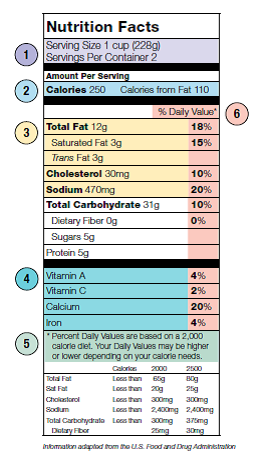



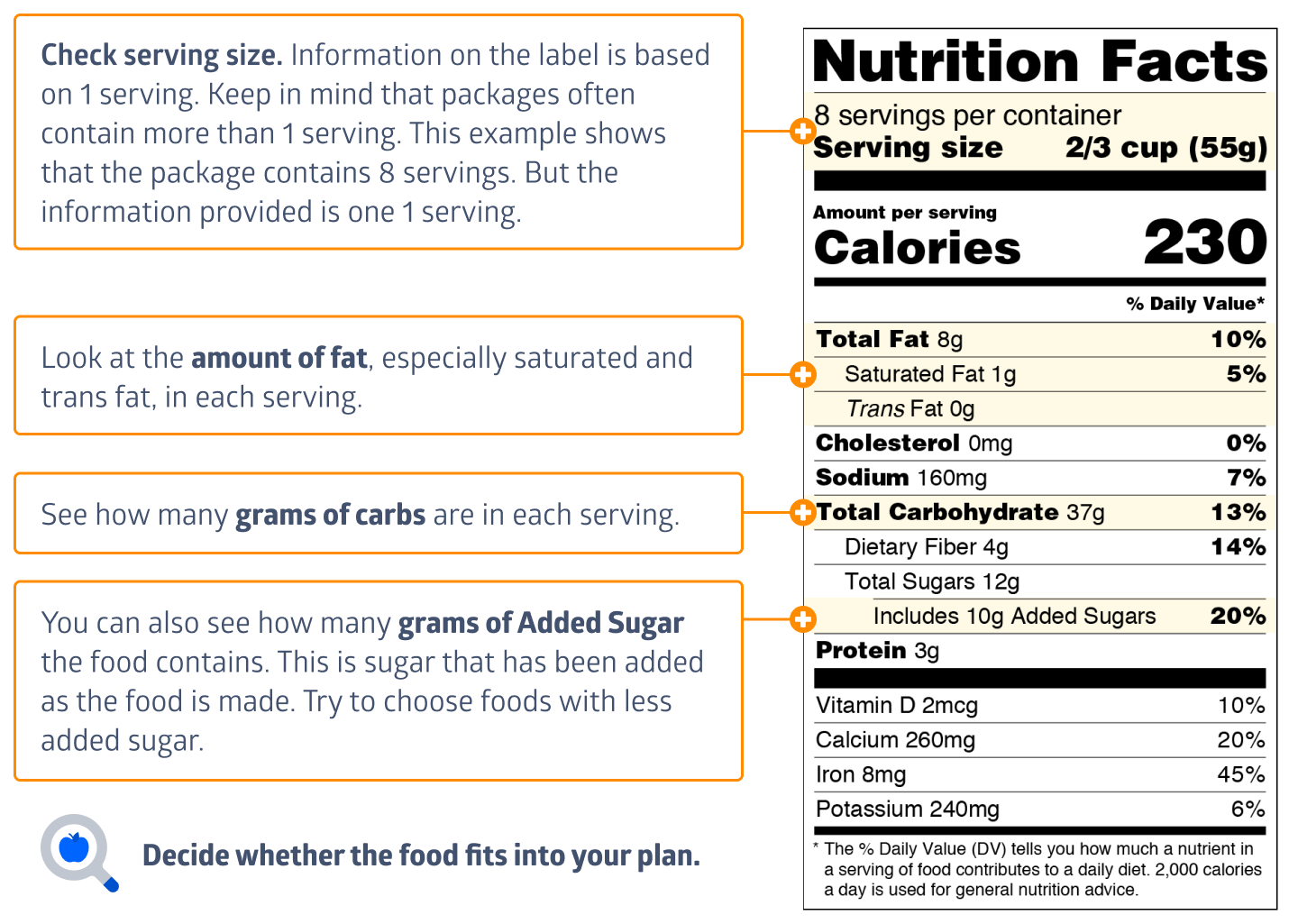
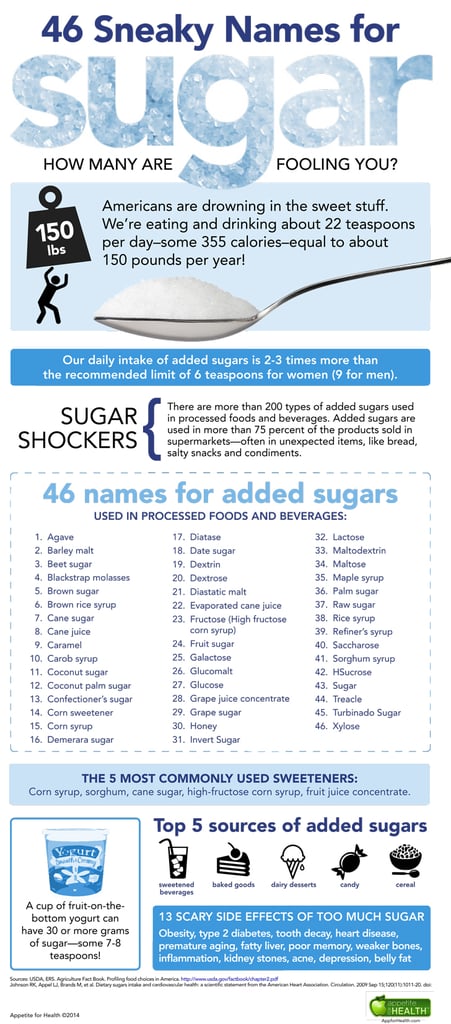
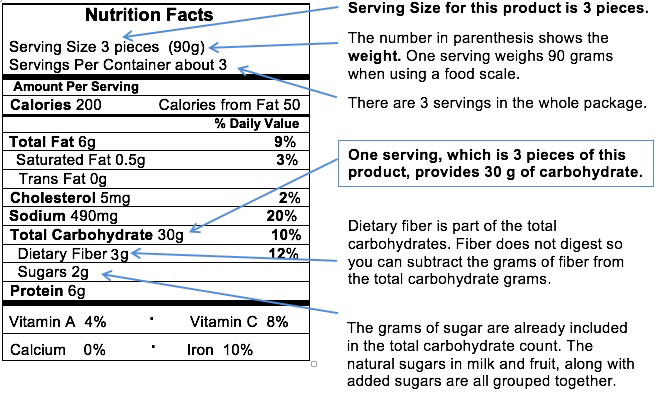

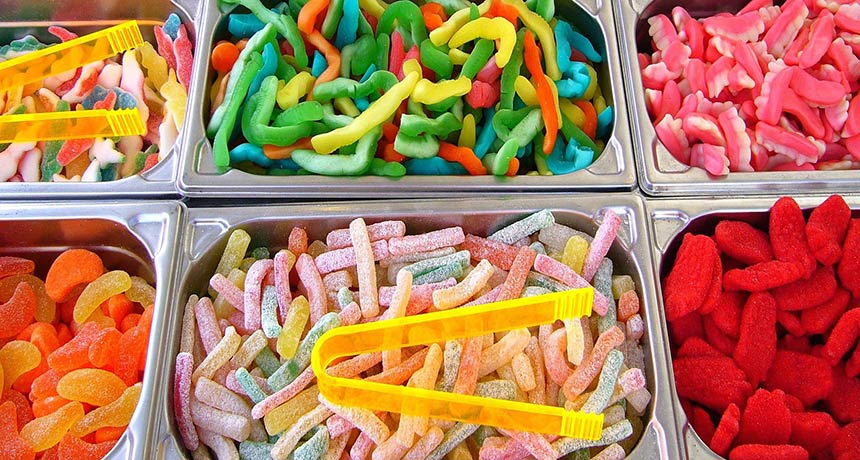
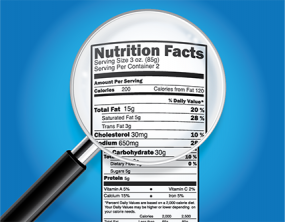

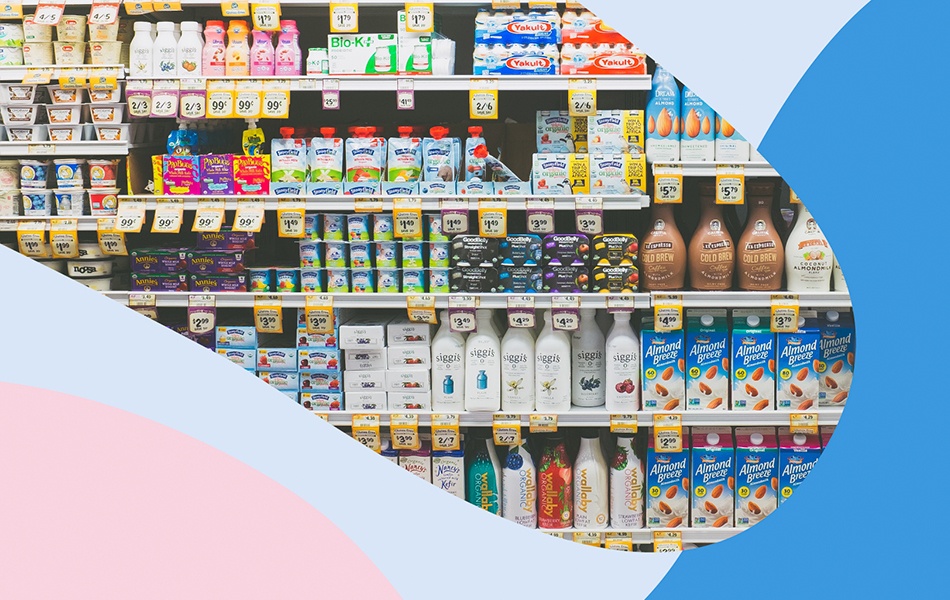

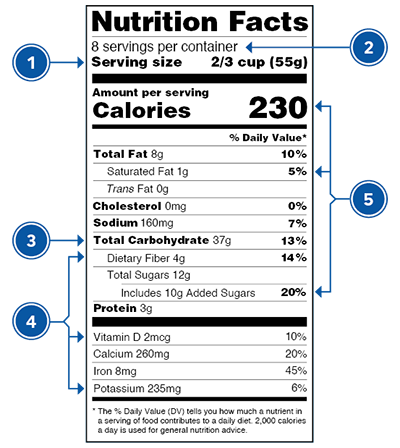

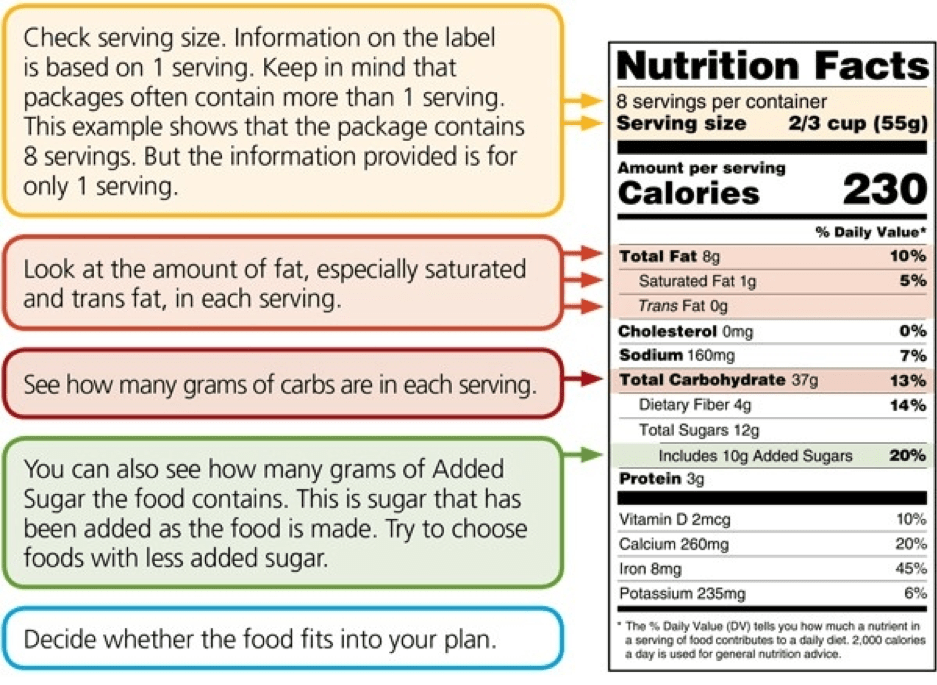
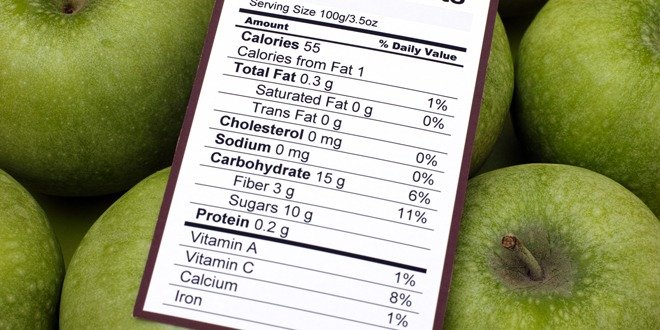
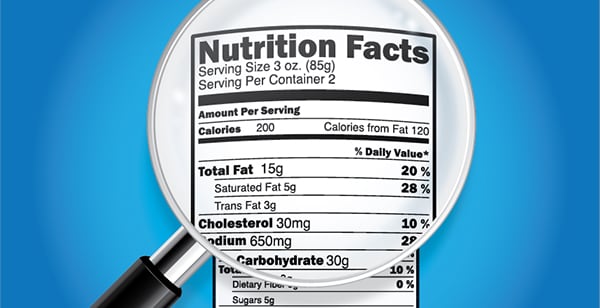
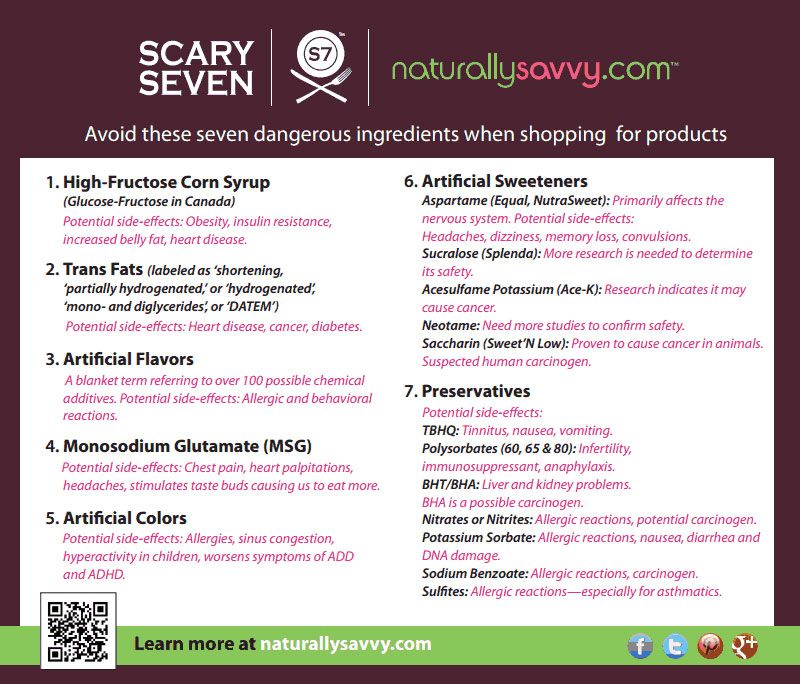
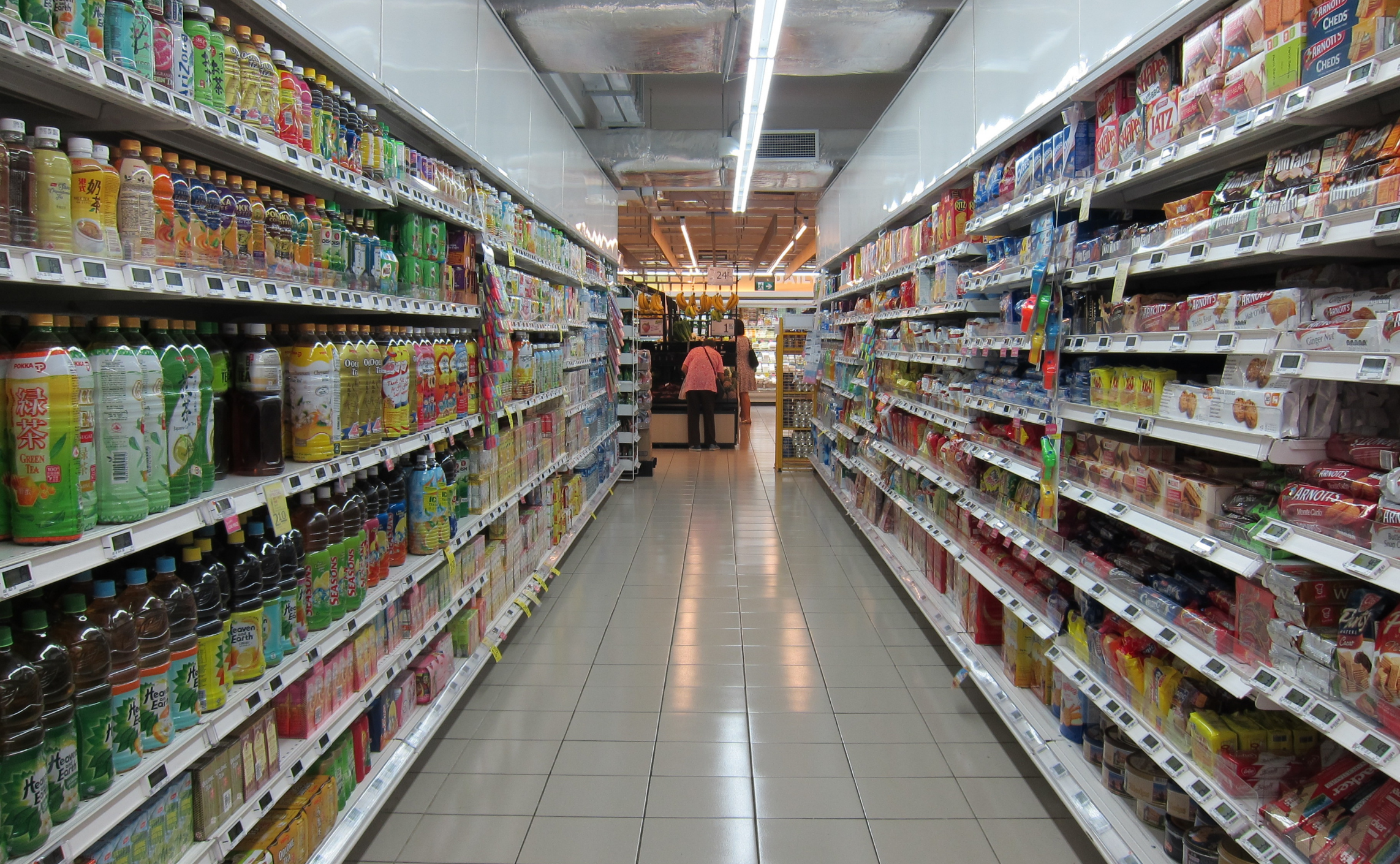
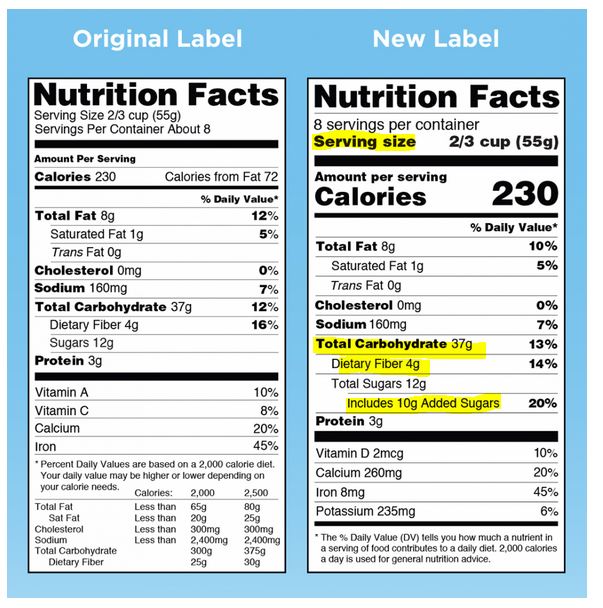
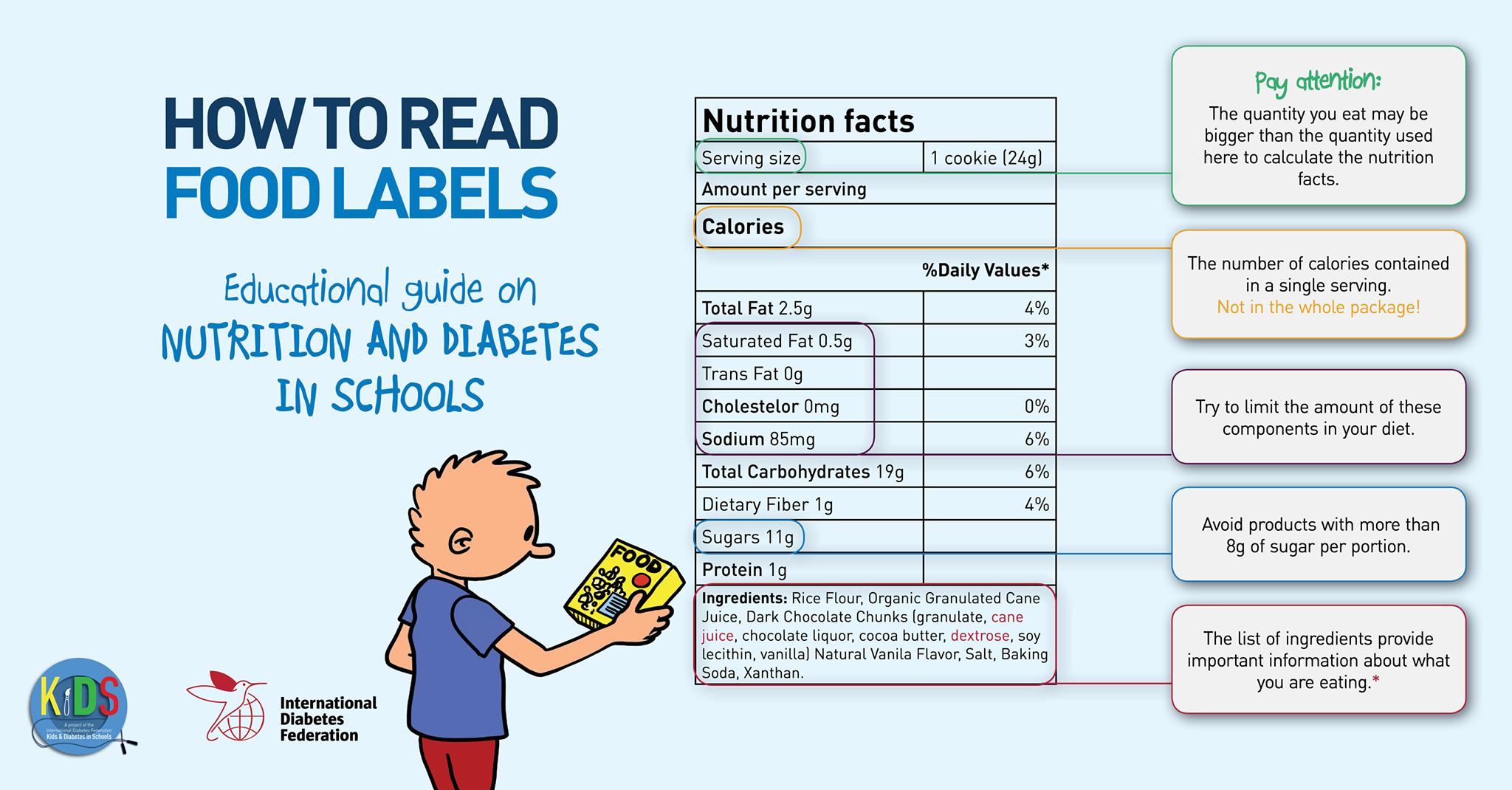

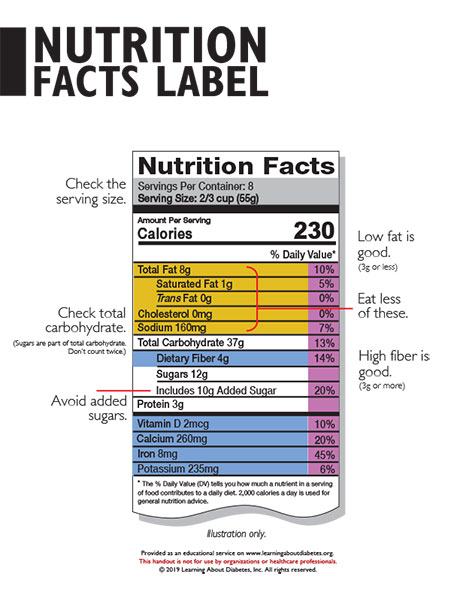

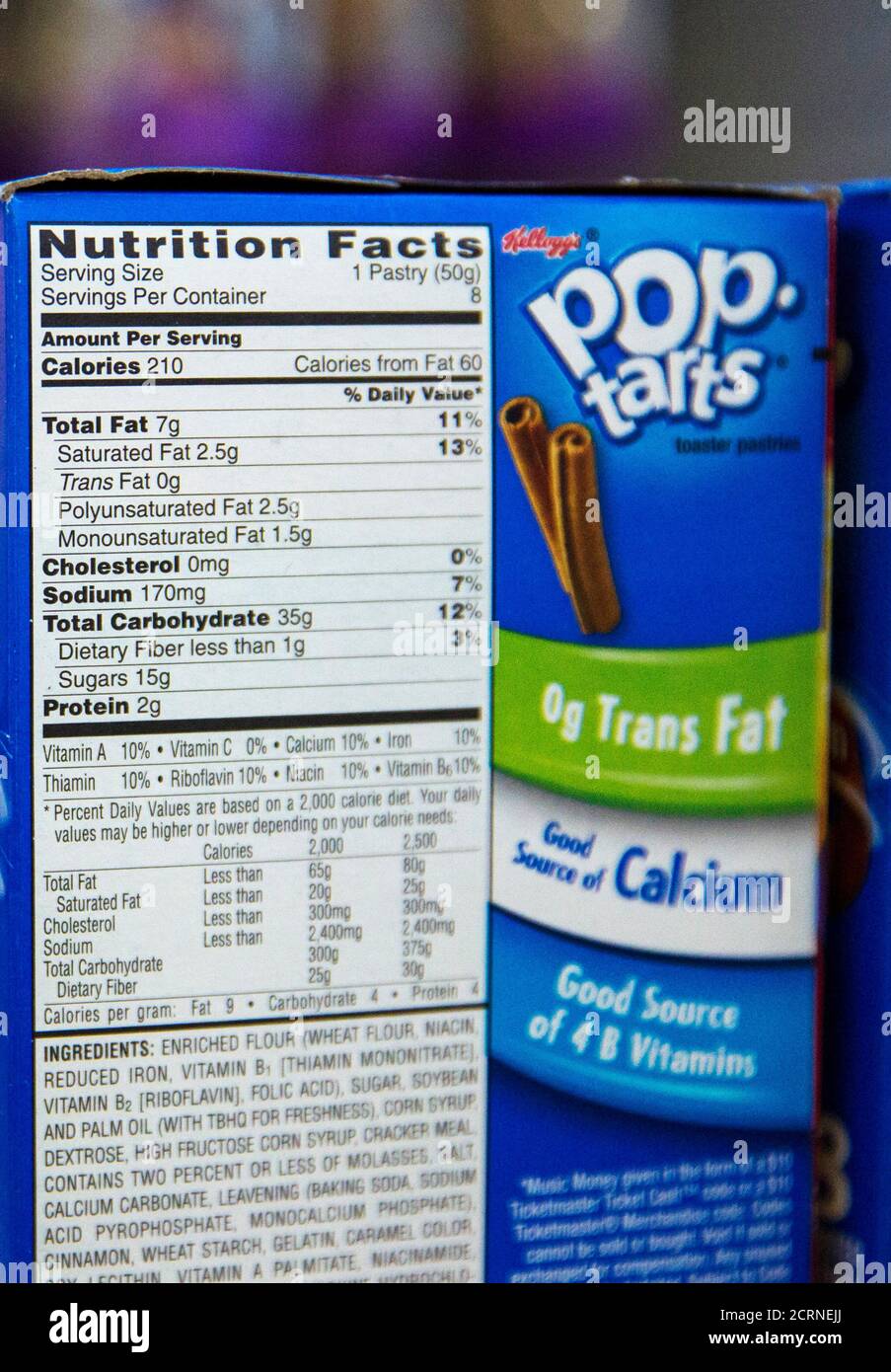
:max_bytes(150000):strip_icc()/carb-counting-and-diabetes-5209223_FINAL-9796df35fa38420baec37a37c3c8347e.jpg)


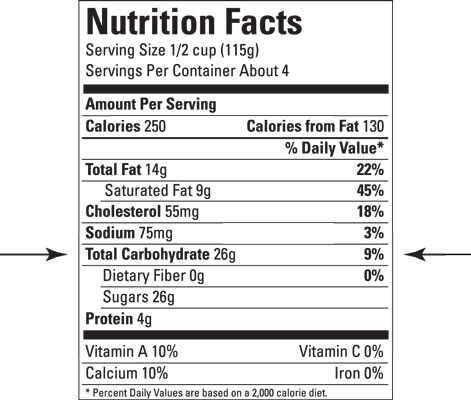
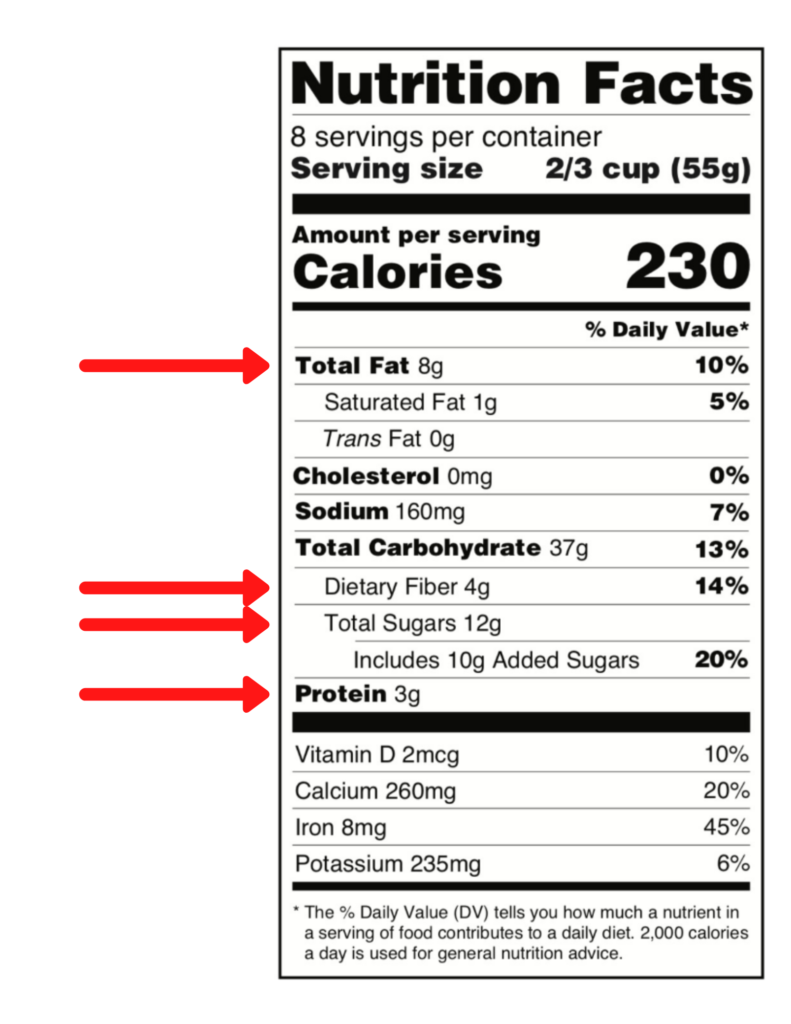

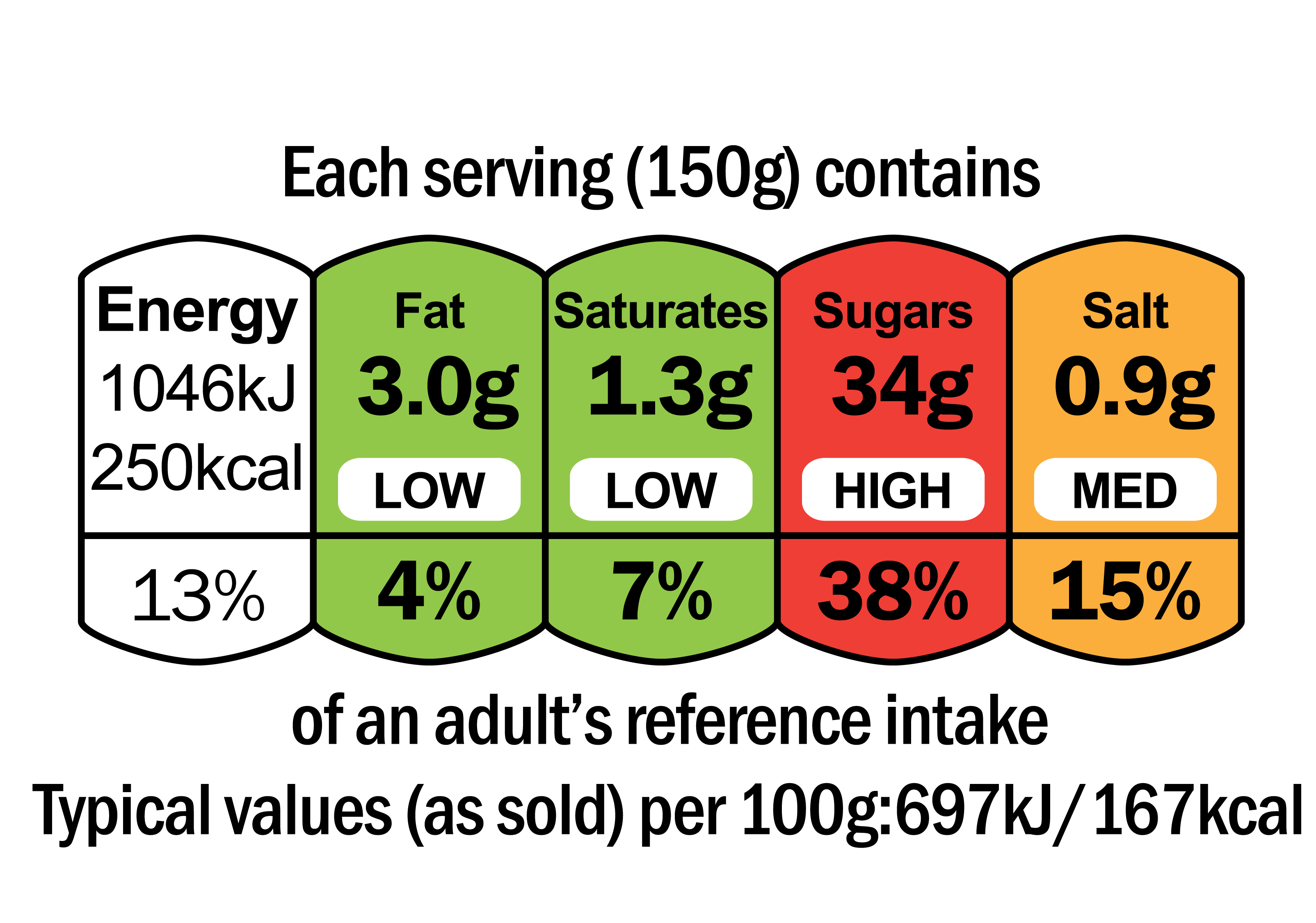
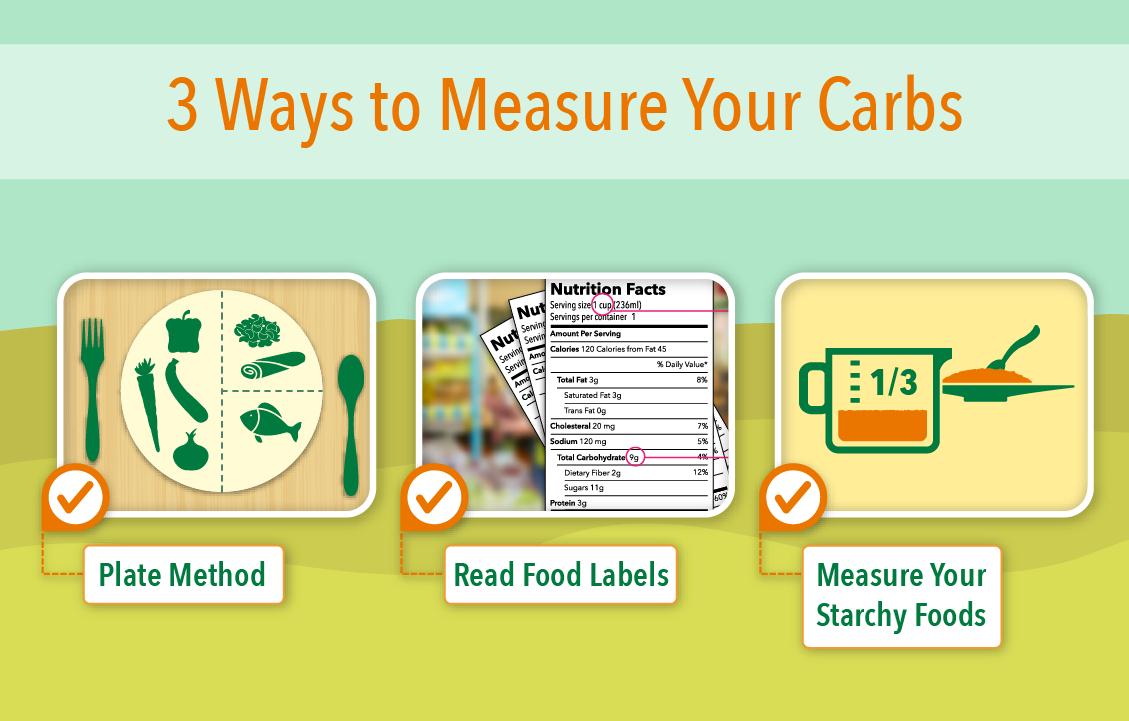

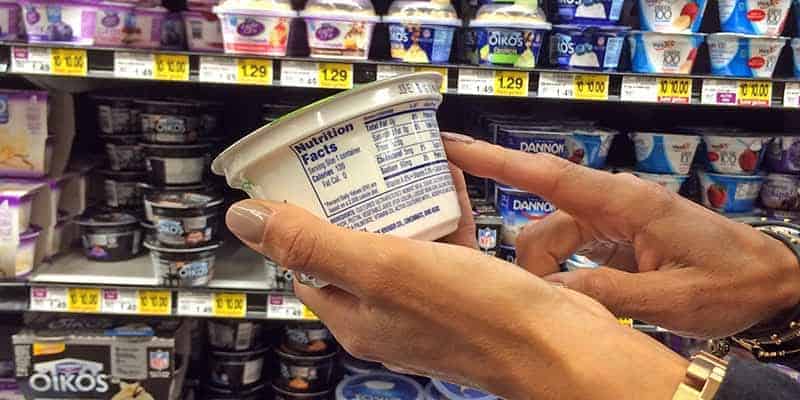
Post a Comment for "42 food labels and diabetes"